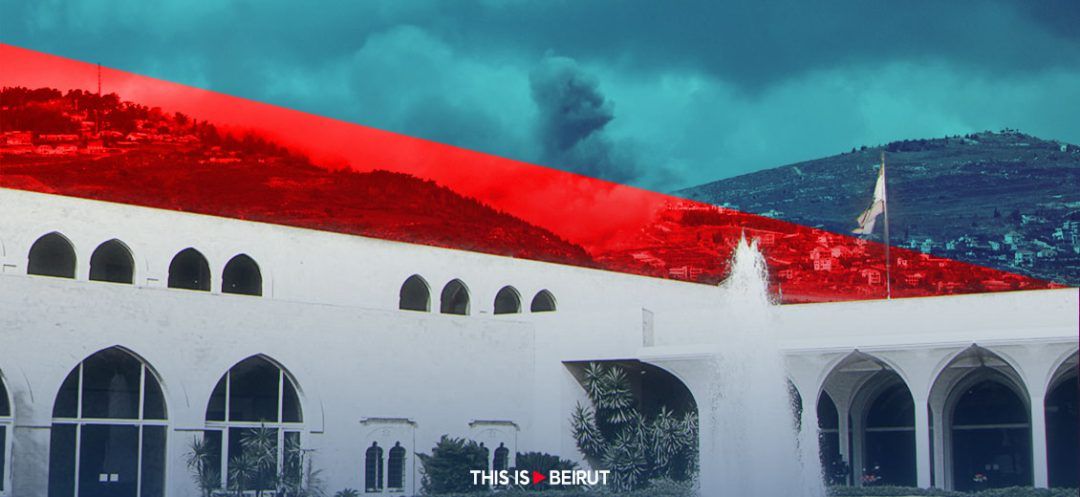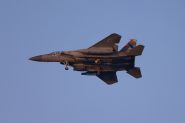
Lebanon has been the scene of a flurry of foreign and Arab diplomatic moves that gained significant momentum in the past months after Hezbollah opened its so-called “support front” for Gaza on the southern border with Israel on October 8.
In June last year, French President Emmanuel Macron appointed his former Foreign Minister Jean-Yves Le Drian as special envoy to Lebanon in a bid to facilitate the long-delayed election of a President of the Republic. The French effort was coordinated with the US, Qatar, Saudi Arabia and Egypt, a five-nation group that is known as the Quintet Committee.
However, the diplomatic bid that was initially focused on the presidential deadlock branched out with the outbreak of the war in Gaza between Israel and the Palestinian Islamist movement Hamas, a Hezbollah ally.
Containing the violence in South Lebanon to prevent any possible degeneration into a full-fledged war became a key focus of international diplomatic efforts.
Outlines of a diplomatic solution to the conflict between Israel and Hezbollah at the initiative of Paris and Washington have been submitted to the Lebanese authorities, despite Hezbollah’s insistence that the opening of negotiations is conditional on an end to hostilities in the Gaza Strip.
US President Joe Biden’s senior envoy Amos Hochstein, who is credited for facilitating the maritime demarcation agreement of October 2022 between Lebanon and Israel, presented a proposal during his visit to Lebanon earlier this month, the latest in a string of diplomatic trips.
In February, it was newly-appointed French Foreign Minister Stéphane Séjourné’s turn to step in with another initiative for pacifying the South and electing a President.
Although diplomatic efforts have multiplied, they all converge on the same objective, French diplomatic sources explained to This is Beirut.
“Regardless of the initiative, the common objective is achieving a comprehensive and full implementation of UN Resolution 1701, and the election of a President of the Republic to kick start the refunctioning of state institutions and introduce economic and financial reforms,” the sources said.
But while the objective is one, the diverse initiatives might differ slightly in terms of the proposed means and ways to reach it.
Concerted diplomatic efforts, notably on local issues such as the presidential standoff, are best illustrated by the Quintet’s activities, the sources said, stressing, however, that “being part of the Quintet does not cancel parallel individual efforts by each country, especially on the regional level about the situation in South Lebanon.”
According to chief Lebanese negotiator, Deputy Parliament Speaker Elias Bou Saab, "The French have their ideas, the Americans have others. They'll come together at some point.”
Information obtained by This is Beirut reveals that the French advocate for a separation between local and regional issues to avoid linking the presidential election and Lebanon’s economic recovery to a settlement in the South, whereas the Americans are in favor of “a package deal” that would encompass all the issues.
Iran-backed Hezbollah, a key player in any settlement, is surprisingly betting on the US, Israel’s staunchest ally, for a favorable deal in view of Washington’s capacity to put pressure on the Hebrew State, according to reliable information.
In the meantime, the Quintet’s ambassadors in Lebanon have been touring politicians and officials to sound out their stances and iron out differences that prevent them from agreeing on a presidential candidate.
Acting as an unofficial spokesperson for the group, Egyptian Ambassador Alaa Moussa declared on Monday (March 18) that a “tangible breakthrough has been achieved (in the presidential issue, editor's note) due to the various stakeholders’ conviction that consensus is needed to elect a new President of the Republic.”
Qatar also came into the spotlight as it reportedly invited Lebanese officials, including Free Patriotic Movement (FPM) chief Gebran Bassil, and former president of the Progressive Socialist Party (PSP) Walid Joumblatt, to visit Doha and meet with senior officials to discuss the presidential file and ways to expedite its completion.
The diplomatic endeavors for Lebanon come in parallel with intensified negotiations to reach a sustainable truce in Gaza’s five-month-long war.
It remains to be seen how successful this assortment of diplomatic undertakings would be in resolving Lebanon’s multiple crises.
Read more



Comments